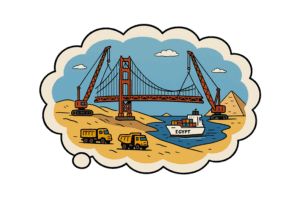
Document Translation Services
We help you translate documents of all kinds.
Expert translation in all fields.
Professional Business and Corporate Document Translation Services
You need a complicated document translated with complete accuracy. You don’t have any knowledge of the language.
You do have a looming deadline. Whatever the next step, it feels like you might be taking a giant leap of faith. It doesn’t need to feel that way.
Clear, Accurate, and Culturally Nuanced Document Translation
When your business communicates across borders, precision matters. Whether you’re handling marketing materials, business reports, technical manuals, or internal communications, our document translation services ensure that your message remains clear, professional, and culturally relevant.
At Brightlines, we go beyond word-for-word translation. Our expert linguists adapt your content to resonate with your audience, maintaining your brand voice while ensuring linguistic and cultural accuracy.
What We Offer:
- Professional document translation services – High-quality translations by industry-specialist linguists.
- Editing & proofreading – Ensuring fluency, accuracy, and consistency across all materials.
- Formatting & layout preservation – Keeping your translated documents polished and professional.
Document Types We Translate:
- For document translation services such as internal corporate communications, Business reports and whitepapers, get a quote here
- For legal document translation visit our Legal Translation Services
- For marketing materials, visit out Creative Marketing Translation Services
- For technical materials, visit our Technical Translation Services
- For website content, visit our Website Translation Services
- For training materials, visit our e-learning Translation Services
Looking for Transcreation?
If your content requires a more creative adaptation—ensuring brand voice, cultural resonance, and emotional impact—our transcreation services might be the right fit. Learn more about transcreation here.
Why Choose Brightlines?
- Human expertise – Every project is handled by experienced, native-language professionals.
- Industry specialisation – We match linguists to your field, whether it’s technical, creative, or corporate.
- Quality assurance – Multi-step reviews ensure high accuracy and fluency.
- Efficient turnaround – We deliver on time, every time, without compromising quality.
Ready to Translate Your Documents?
Let’s make your content work across languages. Get in touch with Brightlines today to discuss your document translation needs.
For more insights into professional translation standards and industry resources, check out the following trusted sources:
Ethnologue (Global language database)
We provide expert translation services for a wide range of documents, including:
Business Documents
Corporate policies, policies, and compliance documents.
Education & Training Materials
E-learning courses, instructional guides, textbooks, and training manuals.
Financial & Corporate Reports
Annual reports, audit documents, investor communications, and balance sheets.
Official & Certified Translations
Birth certificates, academic transcripts and government forms
Medical & Healthcare Materials
Patient records, medical reports, pharmaceutical documents, and research papers.
Technical & Engineering Documents
User manuals, patents, technical specifications, and safety guidelines.
Digital & Software Content
Website translations, app interfaces, user guides, and software documentation.
Internal & External Communications
Emails, business proposals, presentations, and correspondence.
What is document translation, and why is it important?
Document translation is the process of converting written content from one language to another. It ensures clear communication and supports global business expansion by making information accessible across different languages and cultures.
Which types of documents can be translated?
We translate all types of documents, ensuring accuracy and cultural relevance across industries. Whether it's business, technical, creative, or specialised content, our expert translators handle it with precision and professionalism.
How does Brightlines ensure accurate translations?
At Brightlines, we guarantee accuracy by working with native-speaking translators who specialise in your industry. We use glossaries, style guides, and a multi-step proofreading process to ensure clarity, consistency, and cultural relevance. Every translation undergoes rigorous quality control to meet the highest standards.
What determines the cost of document translation?
The cost of document translation depends on several factors, including word count, content complexity, and the level of industry expertise required. Specialised documents may need expert translators familiar with technical terminology, while highly creative content may require additional adaptation. Pricing structures vary, with many providers charging per word, per page, or based on project scope.
How long does document translation take?
The time required for document translation depends on factors such as document length, complexity, and translator availability. On average, a professional translator can handle between 2,000 and 2,500 words per day. Urgent projects may be completed faster with expedited services, though turnaround times can vary depending on the nature of the content and the level of review required.
Case Studies
Let's Bring Your Words to Life
Your words matter, and we’re here to make sure they resonate in every language. Whether you need a single document translated or ongoing support, we’re ready to help. Contact us today—we’d love to chat about your project and find the best way to bring your message to the world.







